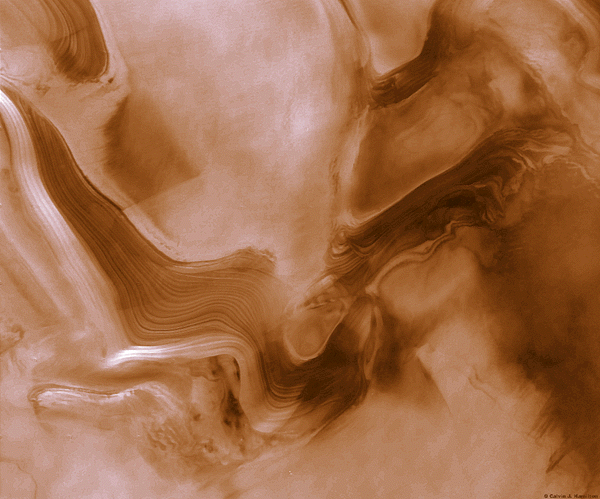![]()
| Home Michael Ammar Solar System Solar System Summary Sun Sun's Statistics Mercury Mercury's Statistics Venus Venus' Statistics Earth Earth's Statistics Mars Mars' Statistics Asteroid Field Asteroid Field's Statistics Jupiter Jupiter's Statistics Saturn Saturn's Statistics Uranus Uranus' Statistics Neptun Neptun's Statistics Pluto Pluto's Statistics Picture Library |
 |
| Polar Laminated Terrain One of the discoveries of the Mariner 9 spacecraft was that the south polar cap of Mars was made of thin layers or laminations of ice and sediment. Four years later, on October 10, 1976, the Viking 2 spacecraft took this picture of the Martian north polar cap. The visible layering occurred as a result of wind born dust settling upon the polar cap. As the caps experience climatic variations, they expand and contract. The layers of dust sediment tend to grow thicker near the poles where ice deposits remain for longer periods of time. The thickness of the deposits indicates they were formed during cyclical climatic variation rather than annual changes. As ice withdraws from a region, wind exposes the layers sculpting valleys and scarps. The formation of layered deposits is an active process today. (Copyright 1998 by Calvin J. Hamilton) |
Send mail to [email protected] with questions or comments
about this web site.
Copyright � 1998 Michael Ammar.